Organized by:
Missouri University of
Science & Technology
Systems Engineering Graduate Program
Smart Engineering Systems Laboratory
600 W. 14th St.
Rolla, MO 65409-0370
Phone: 573-341-6576
Email: complexsystems@mst.edu
2015 Conference Plenary Speakers
Click photo below for speaker's biography/presentation information
|
|
|
|
|
| 3514131535 |
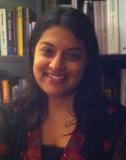
|
Amrita Basu, PhD Title: “Exploiting Big Data in Precision Medicine” |
Monday, Nov. 2 |
Abstract:
Rapid advances in sequencing and proteomics are opening up new vistas of personalized biomedical data. To achieve the goals of the government’s Precision Medicine Initiative and go from measurement to clinical translation, substantial gains still need to be made in methods of large-scale data integration, analysis and interpretation. It was recently suggested that only a small fraction of published results are reproducible, and research focus is biased towards well-studied genes and proteins. As biomedical research moves towards Big Data, data analytic tools and technology can delineate not just limited and well-studied relationships, but all links between disparate entities. For example, there is a growing demand and need to investigate the association between drugs, adverse effects, and genetic variation. To achieve this, we developed a platform that can rapidly identify drug-gene associations and adverse effects among FDA-approved drugs using genetic and phenotypic data, all within a common framework. In addition, we developed technology that can be used to classify positive versus negative responders to selected drugs using data derived from genome-wide association studies and phenotype data. We achieve high sensitivity and specificity when applying our method to the INVEST dataset. Our big data platform will enable scientists and clinicians to discover drug-gene correlations, identify biomarkers of rare and common disease, and continue to unlock the most complex structure in the known universe, human DNA.
Bio:
Amrita Basu is the Genomics and Computational Biology Lead at Lockheed Martin. Previously, she worked at the Broad Institute of Harvard and MIT on predictive modeling approaches for cancer drug discovery. Amrita holds a Bachelors degree in Electrical Engineering from Cornell University and a Ph.D. from Rockefeller University.
Top

|
Mike Calcagno Title: “Assistance Patterns: The DNA that will make |
Wednesday, Nov. 4 |
Abstract:
It’s an exciting time to be working on digital assistants, and the field has grown increasingly crowded in recent years, powered by advances in speech and language understanding, as well as real-time understanding of both user and real world information. Yet, for all the technology we can bring to bear, no digital assistant has reached the point of indispensability in our day-to-day lives. In this talk, I’ll discuss our efforts to identify what we call assistance patterns, and the implications of these patterns for what the next generation of assistants will do, as well as the technology that powers them.
Bio:
Mike Calcagno joined Microsoft in 1999 as an NLP specialist, and has worked on problems and technology in language and document understanding for many years, eventually coming to lead the teams responsible for delivering this technology at scale across all of Microsoft’s products.
In late 2012, he moved to Bing, where he played a key role in designing and building the service that powers Cortana, the world’s best and most personal digital assistant, and his team currently delivers this Cortana service to millions of customers around the world, on Windows, Android and iOS.
Outside of work, he enjoys travel, photography, the winter sport of curling, and collecting vintage mechanical gadgets. He lives in Seattle.
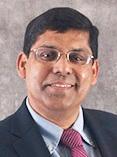
Abstract:
We live in an era of “Internet of Things” where our physical and personal environments are becoming increasingly smarter as they are immersed with sensing, networking, computing and communication capabilities. The availability of rich mobile devices like smartphones and wireless sensors have also empowered humans as an integral part of cyber-physical systems. This synergy has led to cyber-physical-social convergence exhibiting complex interactions, interdependencies and adaptations among devices, machines, systems/environments, users, human behavior, and social dynamics. In such a connected and mobile world, almost everything can act as information source, analyzer and decision maker. This talk will highlight some of the emerging research challenges and opportunities in cyber-physical-social convergence, and then present some novel solutions to tackle them. It will also reflect on a fundamental question: “What’s Next?”
Bio:
Dr. Sajal K. Das, an IEEE Fellow, is the Chair of Computer Science Department and Daniel St. Clair Endowed Chair in Computer Science at the Missouri University of Science and Technology, Rolla. During 2008-2011, he served the US National Science Foundation as a Program Director in the division of Computer Networks and Systems. Prior to 2013 he was a University Distinguished Scholar Professor of Computer Science and Engineering and founding director of the Center for Research in Wireless Mobility and Networking (CReWMaN) at the University of Texas at Arlington. His current research interests include theory and practice of wireless and sensor networks, mobile and pervasive computing, cyber-physical systems and smart environments including smart grid and smart healthcare, distributed and cloud computing, security and privacy, biological and social networks, applied graph theory and game theory. Dr. Das has published extensively in these areas with more than 600 research articles in high quality journals and refereed conference proceedings, and 51 invited book chapters. He coauthored four books – Smart Environments: Technology, Protocols, and Applications (2005), Handbook on Securing Cyber-Physical Critical Infrastructure: Foundations and Challenges (2012), Mobile Agents in Distributed Computing and Networking (2012), and Principles of Cyber-Physical Systems (2015). His h-index is 66 with more than 18,500 citations according to Google Scholar. Dr. Das holds 5 US patents and received 10 Best Paper Awards in prestigious conferences such as ACM MobiCom'99, IEEE PerCom'06 and IEEE SmrtGridComm'12. He is also a recipient of numerous awards for teaching, mentoring and research including the IEEE Computer Society’s Technical Achievement Award for pioneering contributions to sensor networks and mobile computing, Lockheed Martin Teaching Excellence Award, and Graduate Dean’s Award of Excellence for mentoring doctoral students. Dr. Das serves as the Editor in Chief of the Pervasive and Mobile Computing journal, and as Associate Editor of IEEE Transactions on Mobile Computing, ACM Transactions on Sensor Networks, Journal of Parallel and Distributed Computing, and Journal of Peer to Peer Networking and Applications. He is a co-founder of IEEE WoWMoM, IEEE PerCom, and ICDCN conferences.
Top
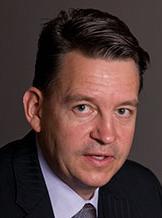
|
Olivier de Weck, PhD Title: "When is complex too complex? Graph energy and its role in |
Monday, Nov 2 |
Presentation |
Abstract:
It is well known that artificial systems that enable modern society to function such as automobiles, printing systems, the electrical grid and medical devices amongst others are becoming more and more complex. This complexity often exceeds the cognitive abilities of a single human designer or even that of sophisticated product development organizations. In this talk I will review typical measures of complexity for cyber-physical systems and focus in particular on graph energy as a key measure, independent of the degree of abstraction of the system, to quantify structural complexity. Several invariants such as the P-point, where complexity exceeds a critical threshold, and the importance of the average nodal degree of <6> will be discussed as important foundations for a more proactive approach to complexity management in the development of cyber-physical systems and the emerging first law of systems engineering: Conservation of Complexity. I will advocate the establishment of "complexity" budgets similar to mass and power budgets in science and engineering.
Bio:
Olivier ("Oli") de Weck is a tenured professor of Engineering at MIT and holds degrees in industrial engineering from ETH Zurich (1993) in Switzerland and aerospace systems engineering from MIT (1999, 2001). Before joining MIT he was a liaison engineer and later engineering program manager on the Swiss F/A-18 fighter aircraft program at McDonnell Douglas (1993-1997).
His research interests, teaching emphasis and professional experience is mainly in two areas: Systems Engineering for Changeability and Commonality – referred to as "Strategic Engineering" – and Space Exploration Logistics. Prof. de Weck is an Associate Fellow of AIAA, winner of the 2007 Best Paper Award for the journal Systems Engineering, the 2006 Frank E. Perkins award for excellence in graduate advising and recipient of the 2007 AIAA MDO TC outstanding service award. He won two best paper awards at the 2004 INCOSE Systems Engineering Conference, held the Robert Noyce Career Development Professorship from 2002-2005, and co-advised the best MIT System Design and Management thesis in 2005.
He has published two books and over 150 papers in the area of systems engineering and space systems design for exploration and communications. His research has been funded by GM, NASA, BP, JPL, Pratt & Whitney, ArvinMeritor, DARPA, AFRL and the Alfred P. Sloan Foundation. Prof. de Weck serves as Associate Editor for the AIAA Journal of Spacecraft and Rockets (JSR) and Chair of the AIAA Space Logistics Technical Committee.
Since July 2008 he serves as associate director for MIT's Engineering Systems Division (ESD). ESD studies complex socio-technical systems and currently has 52 faculty members and research staff and 440 graduate students. In his most recent assignment he serves as executive director for the MIT Production in the Innovation Economy (PIE) study.
Top

|
Robert R. Hoffman, Ph.D Title: "Challenges for a Theory of Complex |
Tuesday, Nov 3 |
Presentation |
Abstract:
This presentation will focus on the design and analysis of macrocognitive work systems. Macrocognition is the study of the functions by which human perception and reasoning adapt to complexity. Macrocognition is distinguished from microcognition. The latter focuses on such phenomena as millisecond shifts of attention, and access to individual long-term memories. Such phenomena are the traditional subject matter of academic laboratory psychology. Macrocognition focuses on processes such as sensemaking, re-planning, and collaborating. These processes span longer periods of time and entail research on the reasoning of domain experts in "real world" humans-machines work contexts (such as cyberwork). The past few decades of research in the fields of Cognitive Systems Engineering and Naturalistic Decision Making have yielded some generalizations about macrocognitive work. These can be regarded as genuine scientific laws, expressing fundamental boundary conditions. This presentation will review these laws and use them to highlight the challenges in forming a covering theory of complex cognitive systems. There are many challenges, relating to the requirement that a well-formed scientific theory have an articulated subject matter (complex systems, in general) and ontology, a metatheory, and a methodology, as well as a set of testable laws. A theory of macrocognitive work systems must deviate from the classical norms in a number of respects. For instance, the metatheory must assume that the ontology and the laws are necessarily incomplete, and the methodology must assert that the set of conceptual measurables is unbounded. The outline of such a theory is now well within our grasp.
Bio:
Hoffman is a recognized world leader in cognitive systems engineering and Human-Centered Computing. He is a Fellow of the Association for Psychological Science, Fellow of the Human Factors and Ergonomics Society, Senior Member of the Association for the Advancement of Artificial Intelligence, and a Fulbright Scholar. His Ph.D. is in experimental psychology from the University of Cincinnati, where he received McMicken Scholar, Psi Chi, and Delta Tau Kappa Honors. Following a Postdoctoral Associateship at the Center for Research on Human Learning at the University of Minnesota, he joined the faculty of the Institute for Advanced Psychological Studies at Adelphi University. He began his career as a psycholinguist, and founded the journal, Metaphor and Symbol. His subsequent research leveraged the psycholinguistics background in the study of methods for eliciting the knowledge of domain experts. Hoffman has been recognized internationally in psychology, remote sensing, human factors engineering, intelligence analysis, weather forecasting, and artificial intelligence—for his research on the psychology of expertise, the methodology of cognitive task analysis, human-centering issues for intelligent systems technology, and the design of macrocognitive work systems. Hoffman is a Co-Editor for the Department on Human-Centered Computing in IEEE: Intelligent Systems. He is Editor for the book Series, "Expertise: Research and Applications." He was a co-founder of The Journal of Cognitive Engineering and Decision Making. His current research focuses on the psychology of intelligence analysis, methodological issues in the analysis of complex systems, and performance measurement for macrocognitive work systems. A full vita and all of his publications are available for download at: www.ihmc.us/users/rhoffman/main.
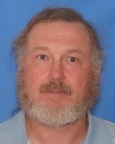 |
James Holdener, P.E.
Complex Adaptive Systems - |
Luncheon Keynote | Presentation |
Bio:
James Holdener has over 3 decades experience empowering the federal government to solve their toughest problems. He is currently a member of MITRE’s System Engineering Technical Center within the Center for Connected Government. James is responsible for ensuring programs take a holistic approach to the problems they face.
With a deep background in computational modeling and simulation, James brings to bear complexity techniques to integrate the fungibles of the political scene, society, and economics into the technical solutions considered. James received his BS in Electrical Engineering and Computer Science from MIT, his MBA in management from City University (Seattle), and his MS in applied mathematics from George Mason University. He is licensed to practice engineering in the commonwealth of Virginia.
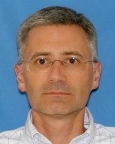 |
Matthew Koehler, PhD
Complex Adaptive Systems - |
Luncheon Keynote | Presentation |
Bio:
Matthew Koehler is the Applied Complexity Sciences Area Lead for US Treasury, US Commerce, and Social Security Administration Program Division within the Center for Connected Government at The MITRE Corporation. As Applied Complexity Sciences Area Lead Matthew is responsible for guiding, growing, and technically contributing to MITRE’s work program in complex systems.
During his time at MITRE, Matt has concentrated on decision support using agent-based models and simulations, and the analysis and visualization of large datasets coming from complex systems. Matt uses these tools and techniques across MITRE’s FFRDCs, and collaborates with other National Labs and FFRDCs, private companies, and educational institutions to address hard problems facing the US Federal Government.
Matt received his AB in Anthropology from Kenyon College, his MPA from Indiana University’s School of Public and Environmental Affairs, his JD from George Washington University’s Law School, and his PhD in Computational Social Science from George Mason University’s Krasnow Institute for Advanced Study.
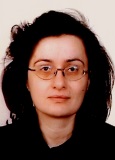
| Iveta Mrázová, PhD Associate Professor and Head of Department Theoretical Computer Science and Mathematical Logic Charles University, Czech Republic Title: "Deep Neural Networks and Their Role in the Quest for Human-Like Brain Power" |
Tuesday, Nov 2 |
Presentation |
Abstract:
The long-term interest in cognitive sciences has been enhanced by several strong impulses to contemporary computer science - in particular by large government initiated brain research projects. Other developments shift the area even more from the traditional von Neumann computing paradigm towards true connectionism implemented in silicon, too. New imaging technologies allow to follow the brain activity even at the individual neuron´s level. Inexpensive graphics processing units are becoming a common option for learning large-scale deep neural networks and currently unveiled brain-inspired chip architectures let us think of constructing complex cognitive algorithms mimicking the function of biological brains.
Perhaps the first deep artificial neural network incorporating some neurophysiological insights was the Neocognitron. Recent brain-inspired models of artificial neural networks include especially the so-called Deep Belief Networks and Convolutional Neural Networks. Both types of networks comprise several layers of functional neurons and both of them proved to be able to beat human performance in various areas of 2D image recognition. These models are, however, expected to yield superior results also for many other tasks ranging from language understanding and translation to multimedia data processing, among others.
While the majority of classical image processing techniques is based on carefully pre-selected image features, deep neural networks are designed to learn local features autonomously with minimum or no advanced pre-processing. The representations formed in their hidden layers resemble a hierarchy combining simpler features found at lower layers into more complex features detected at higher layers. Deep networks can be moreover trained by means of unlabeled data collected, e.g., from the internet. The found features can then be used as common building blocks for new images if labeled data is scarce.
Bio:
Iveta Mrázová, PhD is Associate Professor and Head of Department of Theoretical Computer Science and Mathematical Logic at Faculty of Mathematics and Physics, Charles University in Prague, Czech Republic. She graduated from F. Schiller University in Jena, Germany in 1989 and received her Ph.D. from the Institute of Computer Science of the Czech Academy of Sciences in Prague in 1997. During 2002-2003, she was a Fulbright fellow at Missouri University of Science and Technology in Rolla, USA. Her research interests include artificial intelligence, machine learning and data mining. She published more than 50 research papers focused mainly on the areas of artificial neural networks and knowledge extraction.
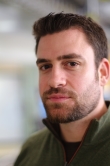 |
Dr. Michael Douglas Norman Complex Adaptive Systems - |
Luncheon Keynote | Presentation |
Bio:
Dr. Michael Douglas Norman began his career as an IT Manager at Cisco Systems in 1998. He then went on to receive a B.S. in Computer Systems Engineering from the University of Massachusetts at Amherst followed by a role as a Software Engineer at Bose Corporation. While at Bose, he was awarded a scholarship to attend the New England Complex Systems Institute's Summer School, where he received formal training in the science of complexity and began to plan his strategy to make his passion into his career. While working as a Senior Technical consultant at Brightcove, Inc., where he was responsible for managing the technical integration of very large customer accounts that required "white glove" treatment, Dr. Norman made the decision to enter the Ph.D. program in Complex Systems and Brain Sciences at Florida Atlantic University, where he worked with Dr. John Gottman to use dynamical systems theory to model the interaction between psychotherapists and their clients. This represented the first (and to the best of the author's knowledge, the only) attempt to bring a rigorous mathematical framework to the study of the psychotherapeutic relationship. After receiving his Ph.D., Dr. Norman went to The MITRE Corporation, where he currently works on some of the U.S. government's toughest problems whose solutions lie at the interseciton of technology and complexity.
Top










